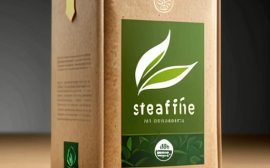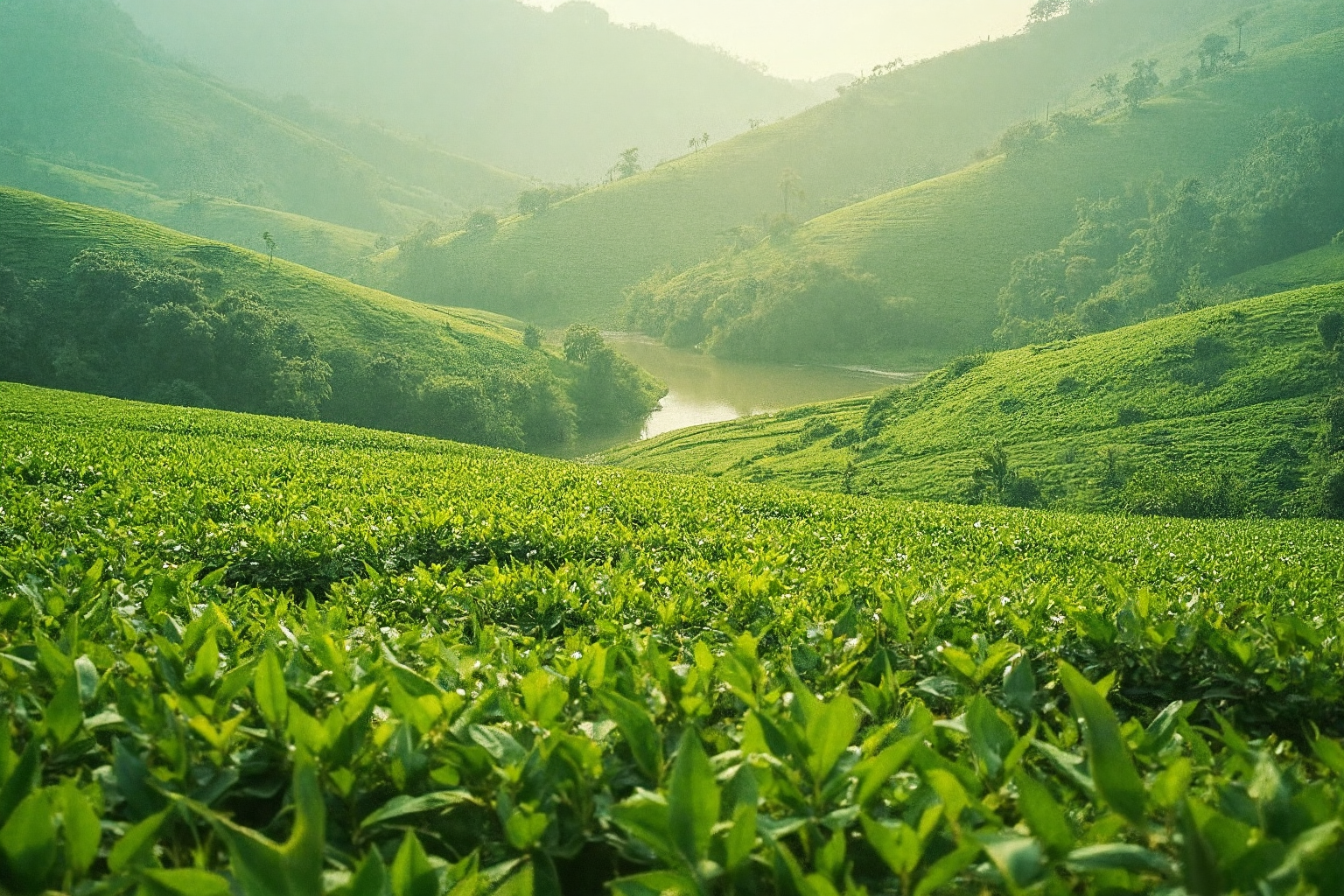The Steep Price of Tea: Navigating the Ethical Landscape
From the rolling hills of Darjeeling to the terraced slopes of Uji, tea cultivation shapes landscapes and livelihoods across the globe. These iconic regions, renowned for their exquisite teas, represent just a fraction of the vast network of tea-producing regions that span continents, each with its unique terroir and cultural heritage. But beneath the serene image of rolling green hills and steaming cups often projected, the tea industry grapples with complex ethical challenges. Issues such as worker exploitation, environmental degradation, and opaque supply chains cast a shadow over this beloved beverage.
This guide delves into the importance of ethical tea sourcing, offering a roadmap for both businesses and consumers to navigate this intricate world and contribute to a more sustainable and equitable future for tea. The idyllic image of tea pluckers gracefully harvesting leaves often masks the harsh realities faced by many tea workers. In some regions, workers endure low wages, inadequate housing, and limited access to healthcare and education. These conditions perpetuate cycles of poverty and hinder community development.
Furthermore, conventional tea farming practices, characterized by the heavy use of synthetic pesticides and fertilizers, can have devastating environmental consequences. Soil erosion, water contamination, and biodiversity loss are just some of the ecological challenges associated with unsustainable tea production. The lack of transparency within complex global supply chains further exacerbates these issues, making it difficult for consumers to discern the true social and environmental impact of their tea purchases. For example, a 2022 report by the Fairtrade Foundation highlighted the precarious situation of many tea workers in Assam, India, revealing that a significant percentage earned below the minimum wage and lacked access to basic necessities.
Such realities underscore the urgent need for greater ethical awareness and action within the tea industry. Ethical tea sourcing seeks to address these challenges by prioritizing fair labor practices, environmental stewardship, and economic empowerment. By choosing ethically sourced tea, consumers can support businesses that are committed to improving the lives of tea workers and protecting the planet. This includes ensuring fair wages and safe working conditions, promoting sustainable agricultural practices, and investing in community development projects.
Transparency throughout the supply chain is also crucial, allowing consumers to trace their tea back to its origin and understand the social and environmental impact of their purchase. The growing consumer demand for ethical products is creating a powerful incentive for businesses to adopt sustainable practices. This shift in consumer behavior is driving innovation and collaboration within the tea industry, paving the way for a more equitable and environmentally responsible future. This guide will explore the key principles of ethical tea sourcing, examine various certifications and labels that help consumers identify ethically produced teas, and provide practical advice for businesses and consumers alike. From understanding the complexities of Fair Trade certification to exploring the potential of blockchain technology for enhanced traceability, this guide will equip you with the knowledge and resources needed to make informed choices and contribute to a more sustainable and ethical tea industry. By understanding the challenges and embracing the opportunities, we can collectively work towards a future where every cup of tea reflects a commitment to social justice and environmental responsibility.
The Bitter Truth: Unpacking the Challenges of Conventional Tea Sourcing
Conventional tea production, driven by the relentless pursuit of profit maximization, often disregards the well-being of both people and the planet, creating a stark contrast to the principles of ethical consumption and sustainable business. Tea workers, the backbone of this industry, frequently endure exploitative conditions, including alarmingly low wages that barely meet basic needs, unsafe working environments rife with potential hazards, and a severe lack of fundamental rights and protections. This systemic undervaluation of labor not only perpetuates cycles of poverty but also stands in direct opposition to fair trade principles that advocate for equitable compensation and improved livelihoods for producers.
Intensive farming practices, commonly employed in conventional tea cultivation, further exacerbate the ethical and environmental concerns. These methods often involve the heavy use of synthetic pesticides, herbicides, and fertilizers, which can severely degrade soil health, pollute vital waterways, and disrupt delicate ecosystems. The widespread application of these chemicals poses significant risks to biodiversity, contaminating habitats and harming beneficial insects and wildlife. Moreover, conventional tea farming contributes substantially to climate change through deforestation, soil erosion, and the release of greenhouse gases from fertilizer production and transportation, undermining the principles of organic farming and sustainable agriculture.
The environmental impact of conventional tea extends beyond the farm. Deforestation to create new tea plantations contributes to habitat loss and reduces carbon sequestration. The heavy reliance on monoculture farming diminishes biodiversity, making tea crops more vulnerable to pests and diseases, which, in turn, necessitates even greater use of chemical inputs. Furthermore, the processing and packaging of tea often involve energy-intensive processes and the use of non-recyclable materials, adding to the industry’s overall carbon footprint.
Transitioning to sustainable tea practices, such as agroforestry and reduced chemical inputs, is crucial for mitigating these harmful effects. A significant obstacle to addressing these ethical and environmental challenges is the pervasive lack of transparency within complex tea supply chains. The journey of tea from the plantation to the consumer’s cup often involves numerous intermediaries, making it exceedingly difficult to trace the origins of the tea and to verify the conditions under which it was produced.
This opacity shields unethical practices from scrutiny, hindering efforts to hold companies accountable for their social and environmental impact. Consumers, often unaware of the hidden costs associated with their tea, are effectively prevented from making informed choices that align with their values. Improving transparency in the tea supply chain through traceability technologies and clear labeling is essential for empowering consumers and driving positive change. The social impact of conventional tea production extends to the communities surrounding tea plantations.
Often, these communities lack access to essential services such as healthcare, education, and clean water. Child labor remains a persistent problem in some regions, depriving children of their right to education and subjecting them to hazardous working conditions. By prioritizing profit over people, conventional tea production perpetuates a cycle of poverty and inequality, undermining the social fabric of these communities. Ethical tea sourcing, on the other hand, seeks to address these issues by investing in community development initiatives, promoting education, and ensuring fair labor practices.
Brewing Change: Key Principles of Ethical Tea Sourcing
Brewing Change: Key Principles of Ethical Tea Sourcing Ethical tea sourcing represents a fundamental shift from prioritizing profits to valuing people and the planet. It rests on interconnected principles that address social, environmental, and economic sustainability within the tea industry. Fair wages and working conditions are paramount, ensuring that tea workers receive dignified livelihoods that support their families and communities. This goes beyond minimum wage requirements to encompass safe working conditions, access to healthcare, and freedom of association.
For instance, Fairtrade certification mandates specific criteria related to worker welfare, empowering farmers and workers to negotiate better terms and improve their living standards. Environmental protection is another cornerstone of ethical tea sourcing. Sustainable agricultural practices, such as minimizing pesticide use and promoting biodiversity, are crucial for safeguarding ecosystems and mitigating the environmental impact of tea cultivation. Organic tea farming, for example, prohibits the use of synthetic pesticides and fertilizers, protecting both the environment and the health of tea workers and consumers.
Initiatives like the Rainforest Alliance certification promote integrated pest management and water conservation, contributing to the long-term health of tea-growing regions. These practices not only protect biodiversity but also enhance the resilience of tea farms to the impacts of climate change. Community development initiatives play a vital role in empowering local communities and promoting social equity. Ethical tea sourcing recognizes that sustainable tea production must benefit the communities where tea is grown. Investing in schools, healthcare facilities, and other social programs helps to build stronger, more resilient communities.
Furthermore, supporting women’s empowerment programs and promoting gender equality are crucial for creating a more equitable tea industry. For example, some ethical tea companies partner with local organizations to provide educational opportunities and microfinance programs, enabling communities to thrive. Transparency throughout the supply chain is essential for building trust and accountability. Consumers are increasingly demanding to know where their tea comes from and how it is produced. Ethical tea companies prioritize traceability, allowing consumers to follow the journey of their tea from the plantation to their cup.
This transparency not only empowers consumers to make informed choices but also holds businesses accountable for their sourcing practices. Blockchain technology is emerging as a powerful tool for enhancing traceability and transparency within the tea supply chain, providing an immutable record of each step in the production process. Finally, ethical tea sourcing necessitates a long-term perspective. Building sustainable tea supply chains requires ongoing commitment and collaboration between producers, businesses, and consumers. By embracing these core principles, the tea industry can create a more sustainable and equitable future, ensuring that the enjoyment of tea doesn’t come at the expense of people or the planet.
Decoding the Labels: Navigating Tea Certifications
Navigating the world of tea certifications can empower consumers to make ethical and sustainable choices. These certifications act as guideposts, signaling a commitment to fair labor practices, environmental stewardship, and community development. Understanding the nuances of each label allows consumers to align their purchases with their values, driving positive change within the tea industry. Fairtrade certification, a prominent mark in the ethical sourcing landscape, ensures that tea producers receive fair prices for their harvests, enabling them to invest in their communities and improve their livelihoods.
This system also prohibits exploitative child labor and promotes safe working conditions. For example, Fairtrade premiums have been used to build schools, improve healthcare access, and empower women in tea-growing regions of India and Kenya. Rainforest Alliance certification focuses on environmental sustainability, promoting responsible land management practices that protect biodiversity and conserve natural resources. Tea estates bearing this label adhere to strict criteria regarding water conservation, waste management, and the protection of wildlife habitats. Consumers who choose Rainforest Alliance certified tea contribute to the preservation of fragile ecosystems and support climate-resilient agriculture.
Organic certification guarantees that tea is cultivated without the use of synthetic pesticides, herbicides, and fertilizers, safeguarding the health of both consumers and the environment. This commitment to natural farming practices protects soil health, reduces water contamination, and supports biodiversity. Furthermore, organic tea cultivation often prioritizes traditional farming methods, preserving cultural heritage and promoting sustainable livelihoods within tea-growing communities. Beyond these core certifications, other labels offer additional insights into a tea’s ethical and environmental impact.
UTZ certification, for instance, focuses on good agricultural practices and worker welfare, while the Ethical Tea Partnership works to improve the lives of tea workers and their families. By recognizing and understanding these certifications, consumers can leverage their purchasing power to promote a more sustainable and equitable tea industry, ensuring that every cup contributes to a better future for both people and the planet. In addition to considering certifications, consumers can further support ethical tea sourcing by seeking out brands that prioritize direct trade relationships with farmers. This approach fosters greater transparency and often ensures fairer prices for producers. By engaging with tea companies about their sourcing practices and advocating for greater transparency within the supply chain, consumers can amplify their impact and drive meaningful change within the industry. Ultimately, informed consumer choices are essential to fostering a more sustainable and ethical future for tea production, from the plantation to our cups.
From Plantation to Cup: Building an Ethical Tea Supply Chain
From Plantation to Cup: Building an Ethical Tea Supply Chain Establishing an ethical tea supply chain requires a comprehensive approach that prioritizes social and environmental responsibility at every stage, from tea garden to consumer’s cup. Businesses seeking to build such a supply chain must move beyond mere compliance and embrace a proactive commitment to transparency, fair labor practices, and environmental stewardship. This begins with partnering with certified suppliers who adhere to rigorous standards like Fairtrade, Rainforest Alliance, and organic certifications.
These certifications provide a baseline assurance of fair prices for farmers, safe working conditions, and environmentally sound agricultural practices. However, true ethical sourcing goes beyond certifications. Direct engagement with producers fosters stronger relationships and allows businesses to gain deeper insights into the specific challenges and opportunities within their supply chains. Regular audits conducted by independent third-party organizations are essential to verify compliance and identify areas for improvement. These audits should encompass social, environmental, and economic aspects of the supply chain, assessing factors such as worker wages, health and safety standards, pesticide use, and waste management practices.
Investing in worker training programs empowers tea workers with valuable skills and knowledge, promoting professional development and improved livelihoods. Such programs can focus on topics like advanced agricultural techniques, financial literacy, and occupational health and safety, contributing to both individual empowerment and overall community well-being. Furthermore, supporting community development initiatives, such as access to clean water, healthcare, and education, strengthens the resilience of tea-growing communities and fosters a more equitable distribution of benefits. Transparency is paramount throughout the supply chain.
Consumers are increasingly demanding to know the origin of their tea and the story behind its production. Businesses can leverage technology, such as blockchain, to track tea from the plantation to the cup, providing consumers with verifiable information about the product’s journey. This level of transparency builds trust with consumers and allows them to make informed purchasing decisions that align with their values. By openly communicating their sourcing practices and engaging with consumers about ethical concerns, businesses can demonstrate their commitment to responsible practices and foster a culture of accountability within the industry.
For example, brands like Clipper Teas and Equal Exchange have long championed ethical sourcing, prioritizing direct trade relationships with small-scale farmers and investing in community development projects. Their success demonstrates that ethical sourcing is not only morally right but also a sound business strategy that resonates with consumers. A 2020 study by the Ethical Consumer Research Association found that consumer demand for ethically sourced products, including tea, is steadily increasing, indicating a growing market opportunity for businesses that prioritize sustainability and social responsibility.
Ultimately, building an ethical tea supply chain is an ongoing process that requires continuous improvement and a genuine commitment to creating a more just and sustainable tea industry. Beyond these core principles, businesses can further strengthen their ethical sourcing efforts by incorporating elements of circular economy principles into their supply chains. This could involve finding innovative ways to repurpose tea waste, such as using spent tea leaves as fertilizer or exploring alternative packaging options that minimize environmental impact. By embracing a holistic approach to sustainability, businesses can not only mitigate the negative impacts of tea production but also create positive social and environmental change within the industry.
The Power of the Cup: The Consumer’s Role in Ethical Tea Consumption
Consumers wield significant power in shaping the ethical landscape of the tea industry. Their purchasing decisions directly influence demand, incentivizing businesses to adopt more responsible practices. Choosing certified brands, particularly those carrying Fairtrade, Rainforest Alliance, or organic labels, sends a clear message that ethical tea sourcing is valued. Fairtrade, for example, guarantees a minimum price for tea farmers and supports community development projects, while organic certification ensures tea is grown without harmful synthetic pesticides, protecting both workers and the environment.
Actively seeking out and prioritizing these certifications is a tangible way for consumers to promote positive change within the tea supply chain. Beyond certifications, supporting small-scale tea farmers and cooperatives can have a profound social impact. These smaller operations often prioritize sustainable farming methods and fair labor practices, but they may lack the resources for expensive certifications or large-scale marketing. By consciously seeking out teas from these producers, often available through specialty tea shops or online retailers, consumers can directly support livelihoods and promote biodiversity.
Consider exploring teas from regions known for their smallholder farming traditions, such as certain areas of Nepal or Taiwan, and learning about the specific social and environmental initiatives undertaken by these producers. This direct engagement fosters a more equitable and sustainable tea industry. Engaging directly with tea companies about their sourcing practices is another powerful tool for consumers. Ask questions about worker welfare, environmental protection measures, and supply chain transparency. Many companies now publish detailed information about their sourcing policies on their websites or in annual reports.
If this information is not readily available, don’t hesitate to reach out to customer service or social media channels to inquire. By holding tea companies accountable for their practices, consumers can drive greater transparency and encourage continuous improvement within the industry. A growing number of consumers are using social media to voice their concerns and share information about ethical tea brands, further amplifying the impact of individual actions. Education and awareness are paramount to empowering consumers to make informed choices.
Understanding the complexities of the tea supply chain, from the challenges faced by tea workers to the environmental impact of different farming practices, is crucial for making ethical purchasing decisions. Resources such as documentaries, articles, and reports from NGOs can provide valuable insights into the social and environmental issues within the tea industry. Furthermore, attending tea tastings or workshops can offer opportunities to learn about different tea varieties and the stories behind them, fostering a deeper appreciation for the people and places involved in bringing tea to our cups.
The more informed consumers are, the more effectively they can advocate for ethical tea sourcing. Ultimately, the power of the cup lies in the collective choices of individual consumers. Each purchase represents a vote for a more sustainable and equitable tea industry. By prioritizing ethical tea sourcing, consumers can contribute to improved livelihoods for tea workers, the protection of biodiversity, and the creation of a more transparent and accountable tea supply chain. This commitment not only enhances the enjoyment of tea but also aligns consumption with values, fostering a sense of social responsibility and contributing to a more sustainable future for all stakeholders in the tea industry.
The Future of Tea: Sustainability and Transparency
The future of ethical tea hinges on greater collaboration between producers, businesses, and consumers, a synergistic approach essential for lasting change. Emerging technologies, such as blockchain, offer unprecedented opportunities to enhance traceability and transparency within the tea supply chain, allowing consumers to trace their tea from the shelf back to the specific farm and even the individual workers involved in its production. This level of accountability can revolutionize the industry, incentivizing ethical practices and penalizing those who fall short.
For sustainable businesses, adopting such technologies isn’t just about compliance; it’s about building a resilient brand that resonates with increasingly conscious consumers. The tea industry is at a critical juncture, where the demand for ethically sourced products is rapidly increasing, driven by a growing awareness of the social impact of tea production. Consumers are no longer solely focused on price; they’re actively seeking out fair trade tea and organic tea options, demonstrating a willingness to pay a premium for products that align with their values.
This shift in consumer behavior presents a significant opportunity for tea companies to differentiate themselves by prioritizing ethical tea sourcing and investing in sustainable practices. Companies like Teapigs and Numi Organic Tea have successfully built their brands around these principles, showcasing the potential for profitability and positive social impact to coexist. One of the most promising avenues for progress lies in supporting small-scale tea farmers and cooperatives. These producers often lack the resources to obtain certifications or compete in the global market, yet they are frequently the most committed to sustainable agriculture and fair labor practices.
By establishing direct trade relationships and providing access to financing and training, businesses can empower these farmers to thrive while ensuring a more equitable distribution of wealth within the tea supply chain. This approach not only fosters economic development in tea-growing regions but also helps to preserve traditional farming methods and protect biodiversity. The social impact of tea extends beyond fair wages; it encompasses community development, access to education, and healthcare for tea workers and their families.
Furthermore, the environmental impact of tea production must be addressed through widespread adoption of organic farming practices. Conventional tea cultivation often relies heavily on synthetic pesticides and fertilizers, which can contaminate soil and water resources, harm wildlife, and pose health risks to workers and consumers. Organic tea cultivation, on the other hand, promotes soil health, reduces pollution, and enhances biodiversity. While the transition to organic farming may require an initial investment, the long-term benefits for the environment and human health are undeniable.
Consumers can support this transition by choosing certified organic tea and encouraging tea companies to prioritize sustainable agriculture. Ultimately, achieving a truly ethical and sustainable tea industry requires a holistic approach that encompasses fair labor practices, environmental stewardship, and transparency throughout the tea supply chain. By embracing innovation, prioritizing ethical practices, and fostering collaboration between producers, businesses, and consumers, the tea industry can create a more sustainable and equitable future for all stakeholders. This includes ongoing dialogue and engagement, as well as a willingness to adapt and improve as new challenges and opportunities arise. The power of the cup lies not only in the flavor and aroma of the tea but also in its potential to drive positive change in the world.



